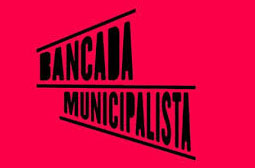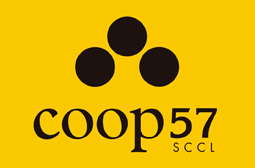
2015 was a year of surprises. After years of work, very diverse sectors were mobilized with the purpose of forming a municipalist candidacy. The objective was to demonstrate in the ballot box the power of a movement capable of organizing itself beyond the classic party lines. We have to remember that that process was full of singularities. One that stood out the most was that, for the first time in decades, a good number of activists from diverse movements decided to prove themselves in the electoral sphere with the goal of taking the Council of Madrid away from those traditionally in power. By “traditional” powers we don’t just mean the successors of the Partido Popular (Popular Party), we also refer to large corporations and a complex mesh of political and business power made up of political parties, financial interests, and business owners large and small.
This political proposal has been elaborated surrounding 3 great axes. The first was that the municipalist movement must be configured as a diverse and respectful space with internal balances for majorities and minorities, with the knowledge that any meaningful piece that was missing would ruin our opportunity to reorient the political direction of the city. The second axis was that the candidacy would function in a radically democratic way, always linked to the most active political realities. The third axis was that the candidacy would approach institutions with an elaborate program backed by thousands of people. This program aimed to present the best alternative proposals related to topics such as the urban model, housing politics, the defense of historical patrimony, radical democracy, and re-municipalization projects aimed at recuperating public control of municipal services. These proposals had been developed over the course of decades and finally materialized in the 2015 electoral program.
For many of the more active sectors of local movements (related to the neighborhood, housing, environmentalism, feminism, or the union movement) the arrival of Ahora Madrid was an exceptional moment. It finally seemed possible to transform a large part of their sustained efforts at social change into a reality after years of work. Four years later, however, the situation is very different. Today there is a significant separation between government officials and the electoral base and social movements that pushed for them to be elected in 2015. At the same time, most of its electoral programming has ended up useless. As a consequence, movements and people that supported the initiative have distance themselves or broken connection with Ahora Madrid. That is the context in which La Bancada Municipalista (The Municipalist’s Bench) was born.
La Bancada Municipalista is a new municipalist wave in Madrid for the 2019 elections, which focuses less on who will actually have a seat in the municipal group. This new municipalist wave must be launched with bravery and without insecurity. It has to do with reconstructing a project from the ground up, where the defense of the project comes above all else– its acronym, its participants, and the great economic interests that govern our city. This cause motivates us to harness collective struggle in order to formulate a new process based on solidarity, empathy with disadvantaged social classes, and the fight against the conservative and economic norms that rule the municipal institution. It is an effort that will return the city to its inhabitants, where all are treated as equals, and structuring it in favor of the citizens who need it the most. The Madrid brand, its discourse of good management and excellence, should not impose its background of commercialism on a city that wants to govern itself and reclaim its rights. Source





